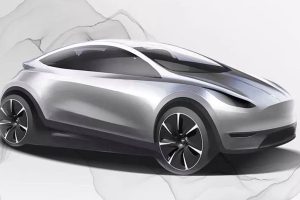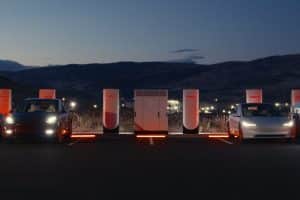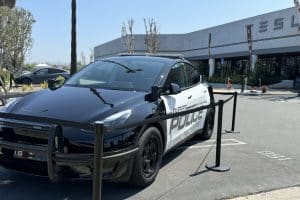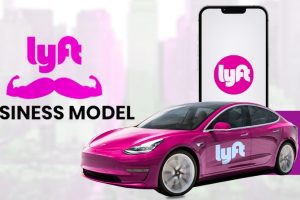Key Points
- 🚗 Tesla is facing a trial in California related to a 2019 accident where Autopilot is accused of causing the death of the driver and injuries to passengers.
- 🔥 The accident involved a Tesla Model 3 veering off the highway at high speed and crashing into a palm tree, resulting in a fire.
- 🍺 Tesla claims the driver had consumed alcohol before the accident and cannot confirm if Autopilot was engaged.
- ⚖️ A similar lawsuit involving Autopilot was recently decided in Tesla’s favor, setting a precedent for such cases.
- 🤔 This trial is more significant as it involves a fatality and could potentially set a groundbreaking legal precedent.
- 📃 Tesla has successfully excluded some of Elon Musk’s public statements about Autopilot from the evidence.
- 👀 Tesla emphasizes that drivers must remain attentive and in control of the vehicle while using Autopilot.
Tesla is heading to trial this morning in what could be a groundbreaking trial in terms of driver assistance features.
Opening statements are set to begin in a California courtroom this morning stemming from a death and two injuries from passengers, who are suing Tesla and accusing Autopilot of causing the accident.
Micah Lee’s Tesla Model 3 suddenly veered off of a Los Angeles highway at 65 MPH and struck a palm tree, the suit, which was filed by the two passengers and Lee’s estate, claims. The car then caught fire.
The crash occurred four years ago in 2019, and the two passengers, one of whom was an 8-year-old boy, were seriously injured. The suit accuses Tesla of knowing that Autopilot and other active safety features were defective when it sold the Model 3 to Lee.
Tesla claims Lee consumed alcohol before getting behind the wheel and said it cannot confirm whether Autopilot was engaged when the accident occurred.
A similar lawsuit was brought to court recently and decided in April 2023. Justin Hsu claimed her Model S swerved into a curb while operating on Autopilot. The collision caused a fractured jaw, missing teeth, and nerve damage to her face.
Hsu sought over $3 million in damages, but a California court awarded her zero damages and acquitted Tesla of any wrongdoing.
It was a major victory for Tesla as it was the first of potentially many cases that involved a plaintiff getting in an accident and blaming a car company’s semi-autonomous vehicle capabilities.
However, the case involving Lee and the two passengers in a Model 3 is more significant and could be potentially groundbreaking as it may set a precedent for future cases because there was a fatality involved.
Reuters said that the pre-trial battle has been intense, and Tesla has succeeded in having some of CEO Elon Musk’s public statements about Autopilot excluded from evidence.
Lee’s family will be able to argue that his blood alcohol content, or BAC, was below the legal limit.
Tesla has never claimed that Autopilot, nor its Full Self-Driving suite, is capable of fully autonomous driving. Disclaimers from the company state that the driver still must pay attention to the road and its surroundings, as they are responsible for taking control of the vehicle.





